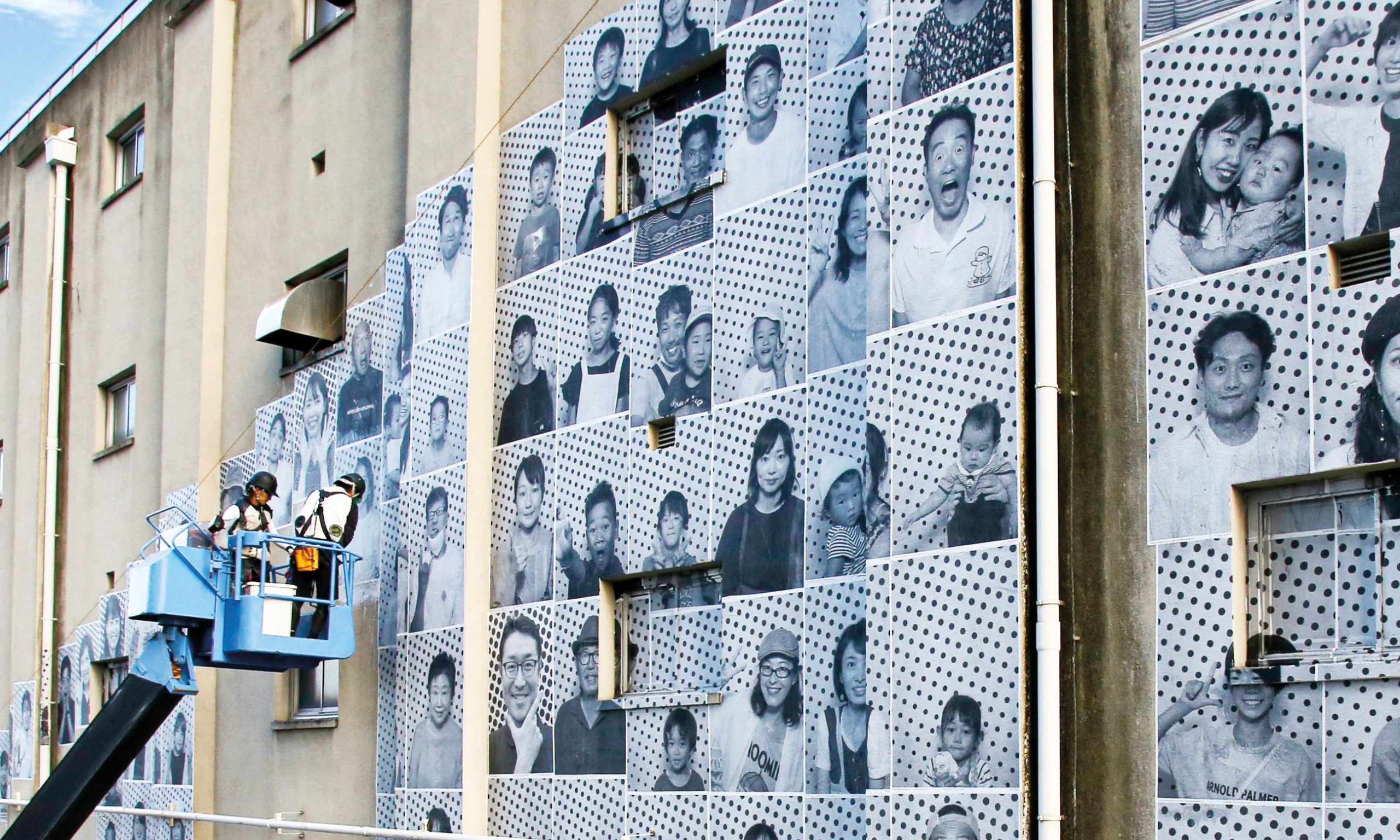An Inside Out project in Kobe, Japan, 2022 Photo: Yoshida-San;
www.insideoutproject.net
Portraits of refugees, asylum seekers and Swiss locals will be pasted onto the façade of a Geneva building next week as part of the latest incarnation of the French artist JR’s participatory InsideOut project. The giant mural will be created and installed on World Refugee Day (20 June) in partnership with Switzerland for UNHCR, the Swiss foundation of the UN Refugee Agency, and Hospice général, the public welfare body in the canton of Geneva.
Founded by JR in 2011, Inside Out “helps individuals and communities to make a statement by displaying large-scale black-and-white portraits in public spaces”. More than half a million people across 150 countries have taken part in the projects, which are now created independently from JR. Inside Out’s photo-booth van will be stationed at Geneva’s Centre d’hébergement collectif Rigot, a facility for asylum-seekers and refugees, with UNHCR mediators on site to explain the initiative to residents.
The Inside Out Photo-booth van in Tucson, USA; since 2011 the project has involved more than half a million people around the world Photo: Joshua Geyer; www.insideoutproject.net
“This action will underline the message of inclusion reflected in this year’s World Refugee Day theme of ‘hope away from home: a world where refugees are always included’,” Switzerland for UNHCR says in a statement. “The portraits of host and refugee communities will be intertwined on the façade, making it impossible for the public to distinguish who is who.”
JR currently has a solo exhibition, Women, at Pace Gallery in Geneva (until 18 July). Meanwhile, his first solo show in Italy, Déplacé.e.s, at the Gallerie d’Italia in Turin (until 16 July), presents installations co-created with communities in refugee settlements in Rwanda, Mauritania, Colombia, Ukraine and Greece.
UNHCR this week published its Global Trends report for 2022, revealing the highest number of forcibly displaced people ever recorded. The total has reached around 110 million, up 20 million in the past two years, mostly due to the war in Ukraine and crises in Afghanistan and Sudan.

